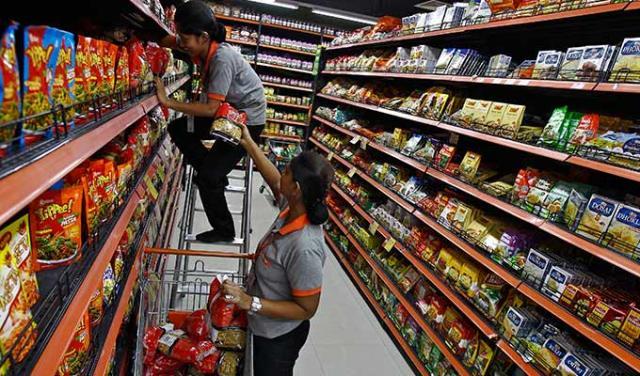The draft model law on Goods and Services Tax (GST) will be finalised in a month's time, a top finance ministry official today said.
"We are also working on draft GST model law. The draft which has been put up by someone in public domain is not the official one. In fact we are still working on it.
"The draft will take one more month and once that is done, we will be putting it in public domain and the similar process of consultation with trade bodies will be done", Special Secretary in the Ministry of Finance Rashmi Verma said at an event organised by industry body Assocham.
Verma said whatever is in circulation is just the base paper prepared for kicking off the discussion on the draft law and there might be number of changes in it further.
Once the Constitution amendment bill to roll out GST is passed by Parliament, the centre and states will have to adopt their own law to give effect to the new indirect tax regime.
The Special Secretary said that the government is open to dropping proposed one per cent additional tax on inter-state movement of goods, if industry demands.
"If after consultation with various industry and political parties, it is felt that we should drop one per cent additional tax then we are open to it", Verma said.
"And definitely, I also agree, with one per cent additional tax going(away), GST structure will improve considerably because even if it is going to be there for only 2 years, there will be some amount of cascading effect", she added.
Verma, however pointed out that the government has already made changes in GST Bill, which is currently in Rajya Sabha, to minimise cascading effects of one per cent additional tax on inter-state movement of goods.
"There are a number of opinions about proposed one per cent additional tax. The select committee, which looked into it, also gave its recommendation, which we have accepted and with that, the cascading effect will be minimised because the one per cent additional tax will now be only on sale, and not on supply of goods."
"So, fear that every time goods move from one state to other, there will be one per cent additional tax need not be there because that change has already been made in Bill", she said.
On dispute resolution mechanism, Verma said GST council will not decide on the dispute but will only look at the modalities.
"So what would be an independent mechanism for dispute resolution will be recommended by the GST council. It can be in the form of tribunal, authority or others. The council itself would not be resolving the issues", she said.
Special Secretary Rashmi Verma said the union government is in favour of higher threshold limit for imposition of GST for traders.
"Administratively, it makes sense to concentrate on bigger dealers. However, final decision will be taken by the GST council", she said.
Expressing hope that GST Bill will be passed in Rajya Sabha, Verma said: "We are fully prepared to implement GST from 2016, our IT (Information Technology) infrastructure is going to be in place."
The Finance Ministry has also finalised core business processes on the basis of recommendations of several committees set up by the Empowered Committee of State Finance Ministers.
She also informed that IT infrastructure for implementation of GST will be ready by the end of January.
Speaking at the same occasion, Central Board of Excise and Customs (CBEC) Chairman Najib Shah said there is a huge gap between tax collected and tax ought to be collected and GST needs to be looked in this perspective.
Shah also asked industry bodies not to lobby for tax exemptions.
"Under the GST regime, we cannot afford to keep moving towards exemptions. Every exemption distorts the entire chain. Every exemption provides arbitrage for somebody to misuse the law. This is something which industry needs to understand that an exemption regime will not be way to go forward", he said.
The CBEC chairman, however noted that dispute resolution under the GST regime is going to be a challenge.
"We have to keep uniformity between centre and state on how to handle disputes...But we are confident that ultimately these are process and journey in which we will learn and unlearn," Shah said.
The government proposes to role out new indirect tax regime GST from April 1, 2016. While the Constitution Amendment Bill is pending in Rajya Sabha, the Centre is getting the administrative preparedness for smooth roll-out of GST.
Besides the Constitution Amendment Bill, the Centre and state will have to pass their own GST legislation, the model for which is being finalised by the Centre.
GST, which is being touted as the most comprehensive indirect taxation reform since independence, will subsume various indirect taxes, including excise, octroi and service tax.





